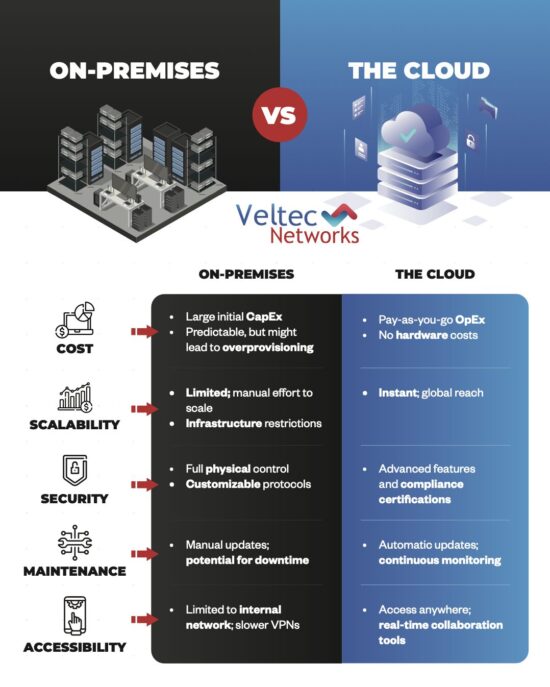What Is The Internet of Things?
The Internet of Things refers to the way devices can connect and communicate over a network. Read on to learn about the concept and its business implications.
From treadmills to toasters to trash cans, smart technology has enabled just about every household item to connect to the internet. The coalescence of these objects on the web is often called the “Internet of Things.” Here’s what every business should know about how the Internet of Things affects our digitally dominated world.
What Is the Internet of Things?
The Internet of Things, or IoT for short, technically comprises any device connected to the internet. In a business context, IoT usually refers to objects that communicate with one other across a network. They can be anything from smartphones and laptops to specialized sensors and radars.
A premier characteristic of the IoT is its autonomy. Smart devices can collect, process, and act on information to help people in various aspects of life. Fitness trackers, for example, can gather and output information about each workout. Smart kitchen appliances make it easier than ever to prepare delicious meals, and self-driving cars are poised to change the way we travel. The IoT allows these devices to interact across local and global networks, creating a more efficient and intimate world.
What Benefits Does the IoT Offer?
From grabbing a bite to eat to managing complex business logistics, the sky’s the limit on how the IoT can impact our lives. In the business world, automation helps optimize day-to-day operations, cutting costs and setting the stage for innovation. The key is how well each device collects and uses data. Not everything needs to be online, but the things that are can offer a multitude of benefits including:
- Improved efficiency in producing and delivering goods and services
- Better monitoring of inventory and supply chain logistics
- Better quality control
- Improved detection of security threats
- Better communication with customers
Are There Downsides to the IoT?
The IoT is a tool, and like any tool, it can be used for good or evil. Smart devices are also relatively new to the market and are constantly being improved and reworked. There has and will be hiccups along the way. Devices don’t always work as well as advertised, and security issues will always be a concern.
If it’s online, it can be hacked. That statement applies to everything from smart thermometers to government servers. As new products hit the market, there’s no way to know where the data is being stored or how it will be used.
Technology is progressing at a breakneck pace, and companies often struggle to balance ease of use with security. In addition to the threat of hackers, the future of AI will see devices actively learning and adapting to new information. But how much information is too much? And just how smart do we want our devices to be? Human civilization is far from perfect, and the IoT is similarly evolving.
Standardization Is Key
The good news is that we can dictate how the IoT develops. Regulation is as important as innovation, if not more so. Individuals, companies and governments must work together to define standards for privacy and security. Doing so will help devices communicate more efficiently and limit the potential of data being used for nefarious purposes.






